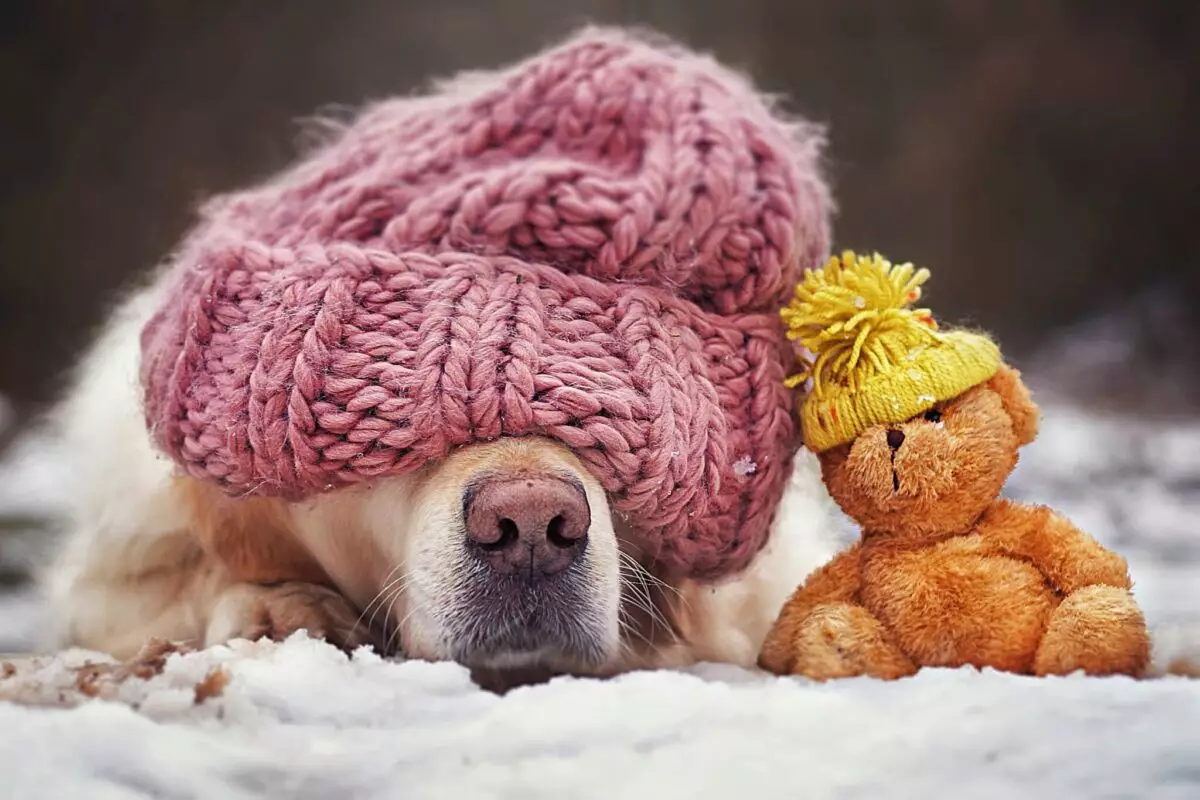As winter approaches, pet owners must pay special attention to their senior dogs. Just as humans can feel the chill more acutely with age, older dogs are also vulnerable to the cold weather, which can exacerbate pre-existing health conditions. This article will explore practical ways to keep your elderly canine companion comfortable and healthy during the winter season, focusing on warmth, joint health, paw care, diet, and regular veterinary check-ups.
Ensuring a warm environment for your senior dog is crucial as the winter months roll in. Older dogs often experience a decrease in metabolism and muscle mass, making them more susceptible to the cold. One of the simplest yet most effective measures is to invest in a quality dog sweater or coat designed to fit snugly and keep them insulated. Pay keen attention to garments that provide coverage for the chest and abdomen, as these areas are vital for heat retention.
Moreover, creating a warm sleeping area can help your dog recharge. An elevated bed can keep your furry friend off cold surfaces, while an orthopedic bed can alleviate discomfort in aging joints. Consider positioning the bed in a draft-free zone and adding extra blankets for warmth, creating a snug sanctuary for rest.
Winter can be brutal on a senior dog’s joints. The cold often aggravates conditions like arthritis, leading to stiffness and pain. It’s essential to be proactive in supporting your dog’s joint health during this time. Incorporating joint supplements containing glucosamine, chondroitin, and omega-3 fatty acids into their diet may promote mobility and reduce inflammation.
In addition to supplements, regular gentle exercise is important. While winter may limit outdoor activities, short walks or indoor play sessions can keep your dog active. Facilities with heated pools offer superb low-impact exercise options, but if swimming isn’t feasible, gentle massage therapy can improve blood circulation to stiff joints and provide relief.
Winter conditions can be particularly harsh on your dog’s paws. Ice, snow, and the chemicals used to treat roads can cause damage that may lead to painful cracking and infection. To safeguard their delicate paws, consider using dog booties to create a barrier against the cold surfaces. If your pet is hesitant to wear them, introduce the booties gradually, ensuring a comfortable fit.
Additionally, applying paw balm can protect against cracking. Opt for a natural, non-toxic balm to keep your dog’s paws healthy, especially since they may lick their pads. After walks, make it a routine to inspect their paws for snow, ice, or debris accumulation to prevent irritations or injuries.
Age and climate can influence a senior dog’s nutritional needs. As they age, dogs may require fewer calories but more nutrients, making high-quality senior dog food essential. Such food is typically richer in vital nutrients and antioxidants that support overall health and immune function.
Furthermore, with a tendency for reduced activity in winter, keeping an eye on weight is crucial. Monitoring their food intake and adjusting as necessary can prevent weight gain, which places extra strain on their already stressed joints. Additionally, many dogs become less inclined to drink water during winter due to dry indoor air. Make sure your dog has continual access to fresh water, and consider incorporating wet foods to enhance hydration.
Winter is an opportune time to prioritize veterinary check-ups, especially if your senior dog hasn’t had one recently. Regular vet visits are invaluable for detecting potential health concerns that can arise with age, and you should discuss any winter-specific issues your dog might face, such as mobility changes or dietary questions.
Moreover, reminders about vaccinations and parasite prevention should not be overlooked; some parasites can survive indoors, and winter illnesses, like canine influenza, still pose threats.
While winter can present numerous challenges for senior dogs, it doesn’t have to be a season of discomfort. By providing warmth through clothing and proper bedding, supporting joint health through supplements and gentle exercise, protecting their paws, attending to diet, and ensuring regular veterinary check-ups, pet owners can make winter a more enjoyable time for their canine companions.
Every dog is unique, so it’s crucial to tailor these recommendations to fit individual needs. With attentive care and love, you can help your senior dog thrive through the colder months, ensuring they remain warm, happy, and healthy. Your commitment to their well-being will undeniably contribute to a more fulfilling winter experience.

